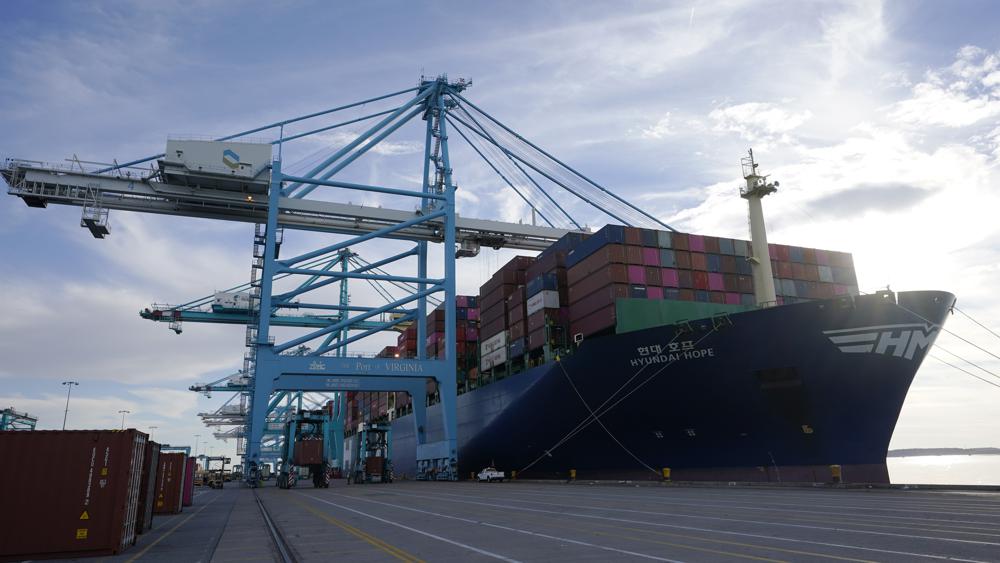The U.S. trade deficit soared to a record $859.1 billion last year as Americans splurged on foreign-made electronics, toys and clothing during the economy’s unexpectedly robust recovery from a short but nasty 2020 pandemic-fueled recession.
The trade gap — the difference between what the United States sells and what it buys from foreign countries — surged 27% last year from $676.7 billion in 2020. U.S. exports rose 18% to more than $2.5 trillion. But imports rose more, climbing 21% to nearly $3.4 trillion.
With millions sheltering at home, spending on dinner out, movies or concerts evaporate. That money moved almost overnight into goods like cellphones, yard equipment or furniture. And generous government relief checks gave them the financial wherewithal and confidence to do so with gusto.
Imported goods soared 21% last year to $2.9 trillion. Imported goods from China rose 16% to $506.4 billion last year, and the goods trade deficit with the Chinese rose nearly 15% to $355.3 billion.
Overall, the U.S. ran a $1.1 trillion deficit in the trade of goods with the rest of the world, the first time the gap has cracked $1 trillion. That was partly offset by a $231.5 billion U.S. surplus in services such as banking, education and tourism.
“The world isn’t back to normal yet when it comes to the pattern of trade in goods and services that existed before the pandemic,” said Christopher Rupkey, chief economist at the financial website fwdbonds.com. But Rupkey said the gap could narrow if COVID-19 cases dwindle, allowing more foreign tourists to visit the United States; their travel spending counts as a U.S. services export.
President Donald Trump sought to reduce America’s longstanding trade deficit (it hasn’t run a trade surplus since 1975) by imposing taxes on foreign goods.
The Biden administration has kept Trump’s tariffs on about $360 billion worth of Chinese imports but has gradually reduced levies on U.S. allies. On Monday, for instance, the United States agreed to essentially lift Trump’s 25% tariff on Japanese steel imports.
In December, the trade deficit rose nearly 2% to $80.7 billion.
(AP)












2 Responses
This is another example of Trump’s stupid policies. Trade wars always result in losers, not winners. Other countries, many of which had previously been friendly, retaliated against our export-oriented sectors. And they also resulted in higher costs for consumers and businesses. Biden should have ended all of Trump’s import taxes the day he took office. Those taxes are a major reason for the higher inflation we are seeing. Every Republican Presidential candidate from Willkie to Romney had supported free trade; Trump is a RINO who wanted to take us back to Herbert Hoover economics — his 25% tariff on steel was higher than Hoover’s notorious Smoot-Hawley tariff. Trump came close to succeeding. 🙁
Of course Clinton ,& Obama have nothing to do with our $1.1 trillion deficit !!!! It’s all Trumps fault !!!!